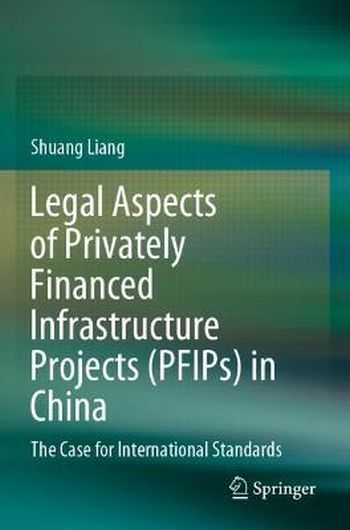
This book discusses the reform and improvement of Chinese legislation on Privately Financed Infrastructure Projects (PFIPs), the goal being to help its implementation in China satisfy international standards. In this regard, current Chinese laws are found to be insufficient when it comes to reducing risks to PFIPs, due to certain shortcomings. Therefore, the corresponding legislation must be reformed and improved.The Legislative Guide and Model Provisions drafted by UNCITRAL are discussed as the international standards that can effectively guide this reform; other countries' laws on PFIPs provide supplementary reference material.Given the rapid rise in the use of PFIPs in China, this book offers a strong theoretical basis for improving Chinese legislation. It also provides general suggestions that can be applied to the reform of laws on PFIPs in any country.